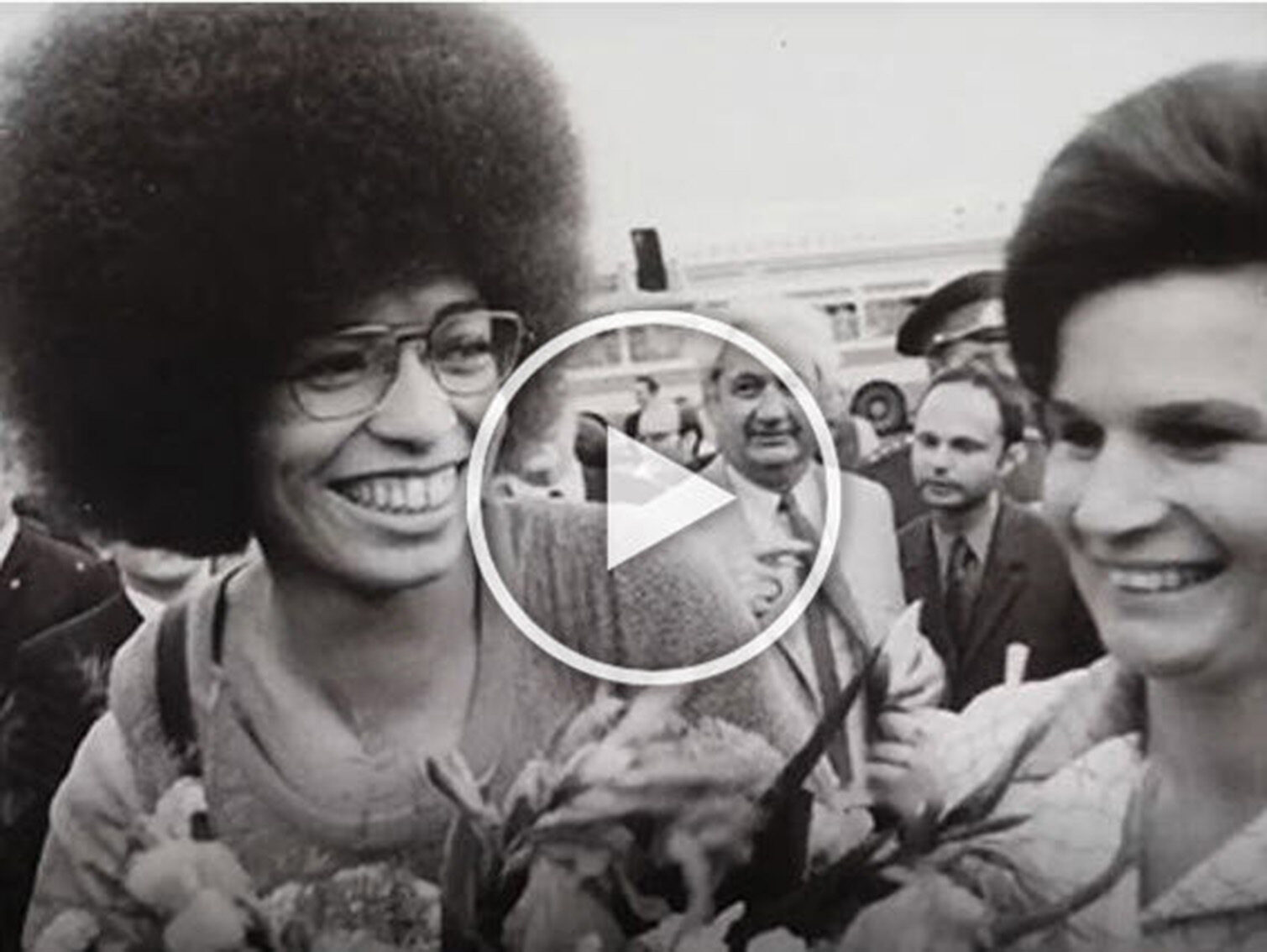Our Friend Angela Davis

In the US, February and March mark the back-to-back celebrations of Black History Month and Women’s History Month, two movements designed to promote figures marginalised by the traditional top-down historical narrative. With this in mind, it seems appropriate to share an intriguing propaganda piece about the African American woman and “enemy of the state” who toured Leonid Brezhnev’s USSR at the height of the Cold War, Angela Davis.
Today, Angela Davis is Professor Emerita at the University of California, Santa Cruz. A Hollywood biopic about her life is reportedly in the works and last year her face featured on a t-shirt in Prada’s SS18 collection. Fifty years ago, however, Davis faced prison after being labelled a terrorist by the oh-so virtuous president, Richard Nixon.
Documentary Our Friend Angela Davis (1972) is one of many gems included in Socialism on Film and focusses on the visit of the American communist, academic and activist to the USSR, where she was addressed as both a “sister” and a “friend”. Purportedly dedicated to equality above all else, the socialist leaders of the Soviet state welcomed several African American delegates – including Langston Hughes and Paul Robeson – warmly and in direct contempt of the US government, who labelled Davis a “criminal” and would for some time deny Robeson access to a passport.
As the narrator explains:
A long, hard road lay behind her. The American reactionaries arrested Angela on a trumped-up charge because she was so active in the Black Civil Rights Movement. They hounded her, a university instructor of philosophy, as though she were a vicious criminal.
In black and white scenes, Davis is greeted by cheering crowds on visits to universities, factories, schools and rallies in Tashkent and Moscow. She is accompanied by the famed cosmonaut, Valentina Tereshkova, and becomes the first foreigner to receive the Lenin Centenary Medal from the Young Communist League. In contrast to the workers’ utopia displayed in this Soviet feature, Davis’ hometown of Birmingham, Alabama is referred to as “Bombingham”; Davis herself references “the children of my country, the children who are victims of poverty and disease and drug peddlers”.
The narrator speaks for Soviet leadership when he says:
We are happy to welcome you, dear Angela Davis, on behalf of the communists and all the people of Moscow, our capital, we express our sincere friendship for you and profound respect for your struggle for a better future for the black people, and all Americans.
Whether the friendship of the Soviet leadership was truly sincere, is – and will remain – unclear, however Davis’ commitment to equal rights surely was. Though she remains a divisive figure, Davis has continued to gain acclaim for her outspoken political stance and devotion to equal rights for African Americans and women.
For more information on Socialism on Film, including pricing, please request a demo.
Recent posts

The blog highlights American Committee on Africa, module II's rich documentation of anti-apartheid activism, focusing on the National Peace Accord, global solidarity, and student-led divestment campaigns. It explores the pivotal role of universities, protests, and public education in pressuring institutions to divest from apartheid, shaping global attitudes toward social justice and reform.

This blog examines how primary sources can be used to trace the impact of young voices on society, particularly during pivotal voting reforms in the UK and the US. Explore materials that reveal insights into youth activism, intergenerational gaps, and societal perceptions, highlighting their interdisciplinary value for studying youth culture, activism, and girlhood across history.
